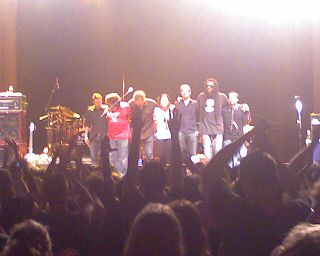
Rusted Root is an American worldbeat rock band formed in 1990 in Pittsburgh, Pennsylvania by singer-guitarist Michael Glabicki, bassist Patrick Norman and percussionist Liz Berlin. The band got its start as the house band playing a weekly gig in Jack's Back Room on Pittsburgh's South Side. The band achieved fame in 1994 with its platinum-selling album When I Woke, which included the hit single "Send Me on My Way". The song has been featured prominently in many films and commercials. Rusted Root has sold more than three million albums, and is currently on hiatus. After releasing The Movement in 2012 and touring through 2015, the band went on an indefinite hiatus, with principal songwriter and vocalist Michael Glabicki forming the group Uprooted with former members of Rusted Root and continuing to tour with that group into the early 2020s.
Worldbeat is a music genre that blends pop music or rock music with world music or traditional music. Worldbeat is similar to other cross-pollination labels of contemporary and roots genres, and which suggest a rhythmic, harmonic or textural contrast between its modern and ethnic elements.
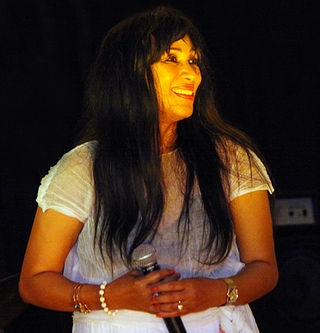
Aster Aweke is an Ethiopian singer-songwriter. Aster's voice has attracted broader public popularity, especially tracing back in 1990s singles and her single "Abebayehosh" in Ethiopian New Year. She is best known for her 1999 album Hagere and her 2006 album Fikir. She moved to the United States in 1981, and she returned to Ethiopia in 1997.
3 Mustaphas 3 is a British world music band formed in 1982. Its core members are Ben Mandelson, Tim Fienburgh (1954–2008), Colin Bass, and Nigel Watson, around which orbit many other Mustaphas – all supposed to be the nephews of Uncle Patrel Mustapha. They claim to originate from the Balkans, but play music from various parts of the world. Their slogan, "Forward in all directions!", is an expression of this musical diversity. Active at the end of the 1980s and the beginning of the 1990s, they have now stopped producing and performing together, but haven't officially disbanded.

Colin Bass is an English musician, singer, songwriter and record producer. Since 1979, he has been a member of the British progressive rock band Camel, who, after a ten-year hiatus due to the ill health of bandleader Andrew Latimer, returned to active touring in 2013. From 1984 to 1992, he was also a core figure in the pioneering World Music group 3 Mustaphas 3. He has also made two solo albums under his own name and three albums recorded in Indonesia under the name Sabah Habas Mustapha. The title track of the first, "Denpasar Moon", became a hugely popular song in Indonesia in the mid-1990s and has been covered by over 50 Indonesian, Malaysian, Japanese and Filipino artists. As a record producer he has worked with a diverse range of international artists including: the Klezmatics (USA), SambaSunda (Indonesia), Daniel Kahn & the Painted Bird (USA) Krar Collective (Ethiopia), Etran Finatawa (Niger) and 9Bach (Wales) amongst others. As a guest artist he has appeared on albums by a number of internationally acclaimed artists including top Malian singing star Oumou Sangare, playing on all tracks of her 1993 Ko Sira album.

"I've Been Thinking About You" is a song by British-American band Londonbeat, released as the lead single from their second studio album, In the Blood (1990). The song was produced by Martyn Phillips, and written by band members Jimmy Chambers, George Chandler, Jimmy Helms, and William Henshall. It became a major worldwide hit, reaching the number-one spot in more than 10 countries—including Australia, Canada, Germany and the United States—and peaking at number two on the UK Singles Chart.
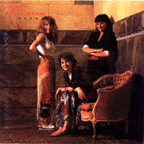
Speak is an album by the American musical trio the Roches, released in 1989 on MCA Records. The album contained two singles that had accompanying videos, "Big Nuthin'" and "Everyone Is Good". Another track, "Nocturne", was included in the 1988 film Crossing Delancey, which costarred Suzzy Roche.
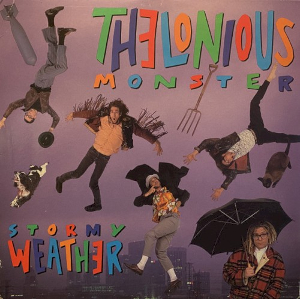
Stormy Weather is the third album by the American band Thelonious Monster, released in 1989. The CD version included their previous album, Next Saturday Afternoon. The band supported the album by touring with Red Hot Chili Peppers and Fishbone. "So What If I Did" was a minor modern rock hit.

Worldbeat is the debut album by Kaoma, released in 1989. It provided three hit singles, two of them achieving success worldwide: "Lambada", "Dançando Lambada" and "Mélodie d'amour". The album is composed of songs in Portuguese, Spanish and English. It was ranked in the top 25 in Switzerland, Germany, Norway, Australia and Austria. It topped the Billboard Latin Pop in the U.S.

Orb is the fourth album by Minneapolis Celtic rock band Boiled in Lead. It was produced by Hijaz Mustapha of British worldbeat band 3 Mustaphas 3. Orb found Boiled in Lead exploring a wider range of traditional music styles than ever before, moving beyond the confines of the Fairport Convention-influenced Celtic rock of previous albums and adding material from Albania, Romania, Macedonia, Sweden, Appalachia, and Thailand. The album's title reflects this, suggesting an embrace of a truly global musical perspective. Bassist Drew Miller attributed the widening of the band's sound to the eye-opening realization that their European audiences were just as comfortable with American musical styles as with any European forms. "We came to the decision that since we're Americans, there's no reason we have to play all Irish material. So we don't." Brett Durand Atwood of Gavin Report praised the album's eclecticism, calling it "a one-world sonic showcase for the tunes of our brothers, sisters, and ancestors." Besides the many world-music influences, Orb also delves into punk rock and psychobilly with guitarist/vocalist Todd Menton's "Tape Decks All Over Hell."
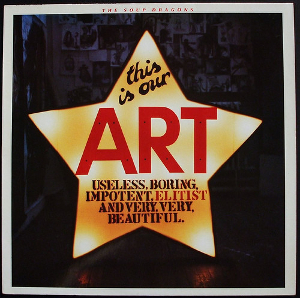
This Is Our Art is the debut studio album by the Scottish band the Soup Dragons, released in 1988.

Where It's At is an album by the American soul group the Holmes Brothers, released in 1991. It was the group's second album for Rounder Records.

Lived to Tell is an album by the American alternative rock band Eleventh Dream Day, released in 1991. Like the band's other two Atlantic Records albums, Lived to Tell was a commercial disappointment. The band supported the album with a North American tour.

Volo Volo is an album by the American worldbeat band Poi Dog Pondering. It was released in 1992 via Columbia Records. The album title is allegedly Swahili for "revolver". Poi Dog Pondering supported the album with a North American tour.

Bloomed is the debut album by the American musician Richard Buckner. It was released in 1994 via the German label Glitterhouse, and the following year in the United States via Dejadisc. A 1999 reissue appended five bonus tracks.
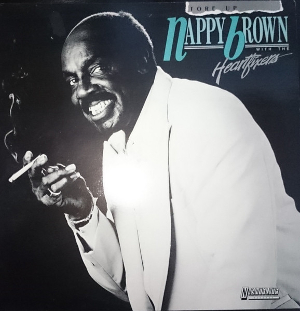
Tore Up is an album by the American blues musician Nappy Brown, released in 1984. A comeback album, it was recorded with Tinsley Ellis and the Heartfixers. The album was reissued by Alligator Records in 1990.

Human Soul is an album by the English musician Graham Parker.

Spirit of Love is an album by the Nigerian musician Majek Fashek. It was released in 1991. Fashek was credited with the Prisoners of Conscience.

Having a Party with Jonathan Richman is an album by the American musician Jonathan Richman, released in 1991. Richman supported the album with a North American tour.

Gonna Take You Downtown is an album by the American musician Beau Jocque, released in 1996. He is credited with his band, the Zydeco Hi-Rollers. Issued as a vinyl dance track, "Make It Stank " was a regional radio hit. Jocque supported the album with a North American tour.


















